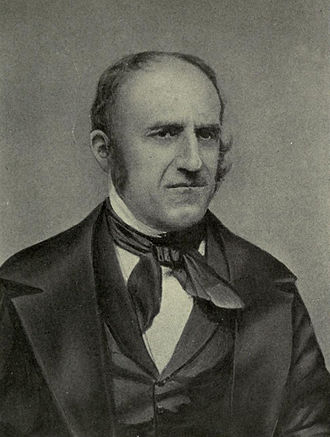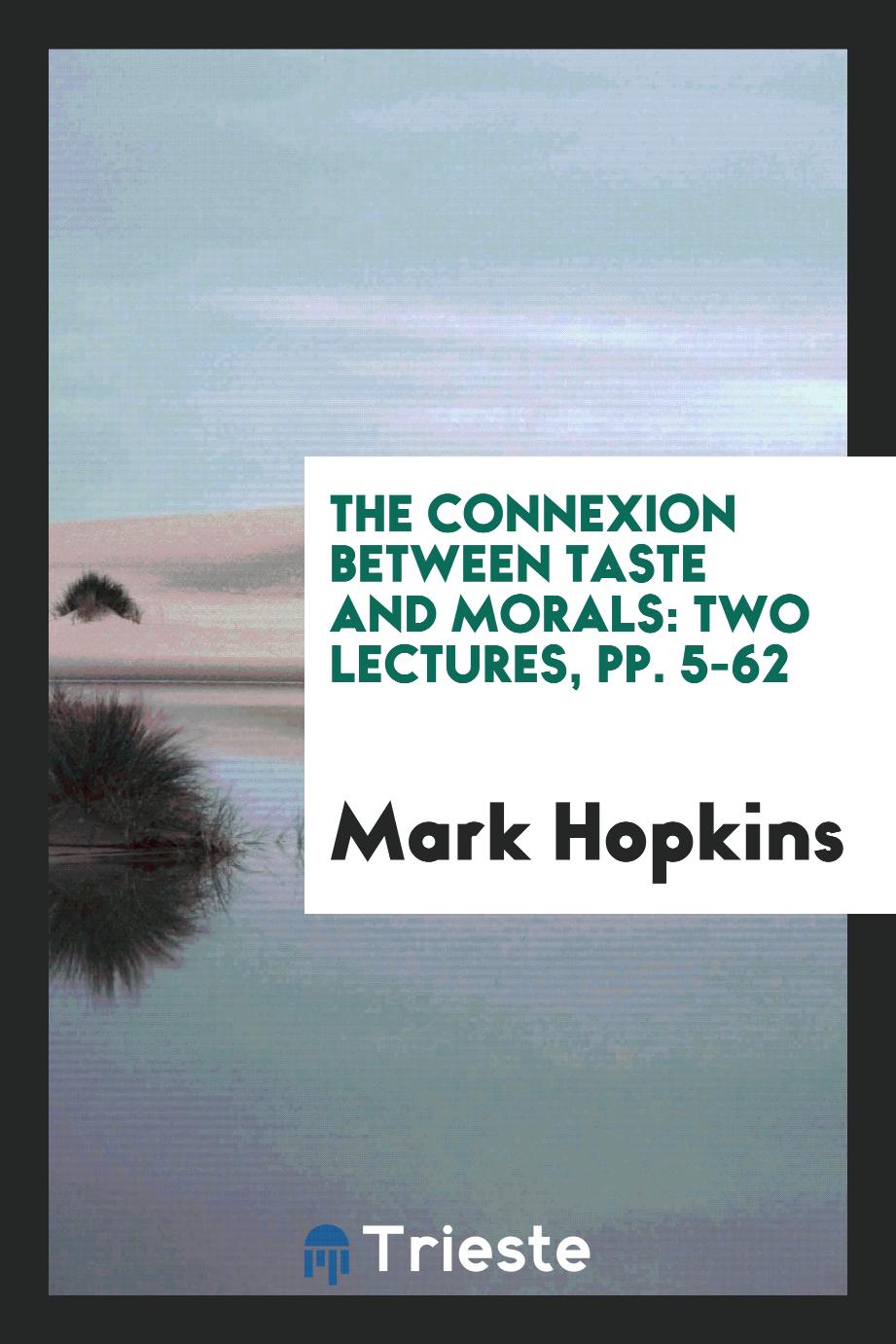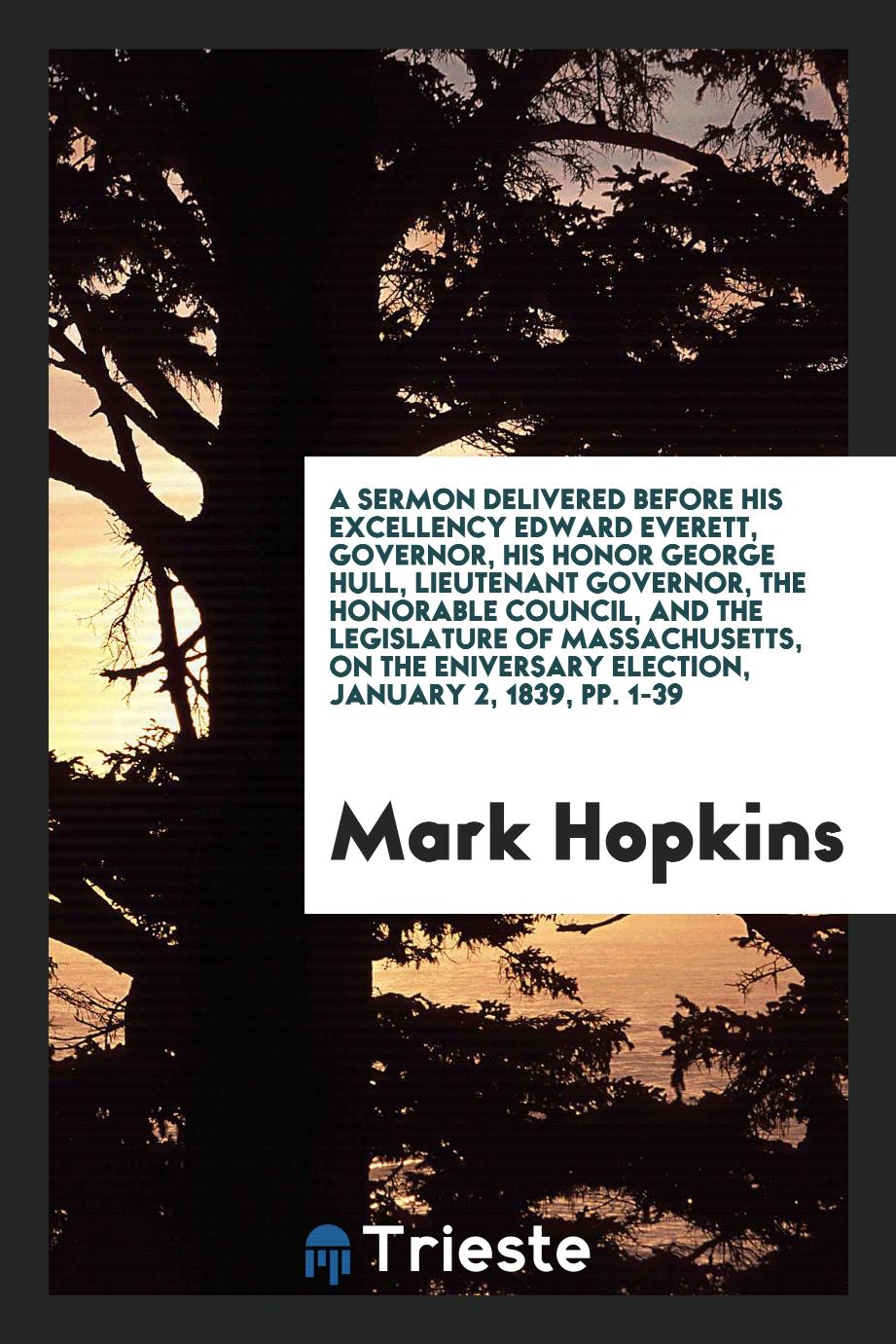
Mark Hopkins
Mark Hopkins (February 4, 1802 - June 17, 1887) was an American educator and Congregationalist theologian, president of Williams College from 1836 to 1872. An epigram — widely attributed to President James A. Garfield, a student of Hopkins — defined an ideal college as "Mark Hopkins on one end of a log and a student on the other". Great-nephew of the theologian Samuel Hopkins, Mark Hopkins was born in Stockbridge, Massachusetts. He graduated in 1824 from Williams College, where he was a tutor in 1825-1827, and where in 1830, after having graduated in the previous year from the Berkshire Medical College at Pittsfield, he became professor of Moral Philosophy and Rhetoric. In 1833 he was licensed to preach in Congregational churches. He was president of Williams College from 1836 until 1872. He was one of the ablest and most successful of the old type of college president. He married Mary Hubbell in 1832 and together they parented ten children. President James Garfield had attended Williams College in the 1850s. At an 1871 dinner of Williams alumni, Garfield paid tribute to Hopkins, defining an ideal college as Hopkins and a student together in a log cabin. The epigram became more widely known in the pithier form retold by John James Ingalls, in which a log was substituted for the log cabin. In the later judgment of university historian Frederick Rudolph, "no one can properly address himself to the question of higher education in the United States without paying homage in some way to the aphorism of the log and to Mark Hopkins". In 1915 Hopkins was elected into the American Hall of Fame.


